Karazin University Alumni on the Frontline: Oleksandr Vasylikivsky
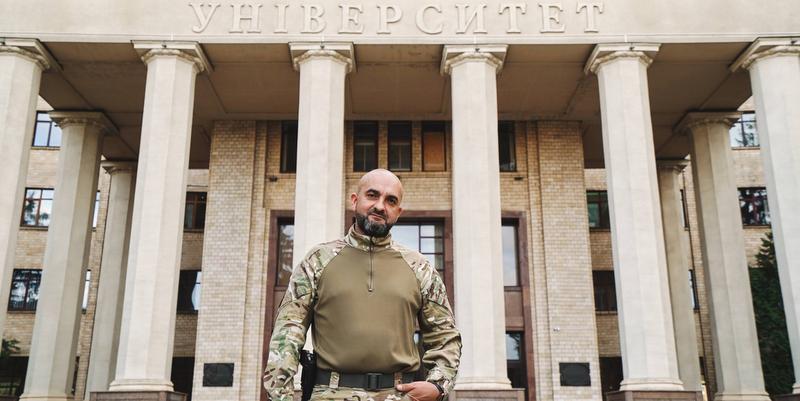
Please tell us about yourself, what were you doing before the war with russia?
I was already serving my country before the war with russia. I am an officer with 25 years of service. I began my military career in 1997 at the Odessa Institute of Land Forces, where I studied at the General Military School. This department trains commanders of mechanized platoons. In 2001, I graduated from the institute, and my service in the Armed Forces of Ukraine began. In 2012, I enrolled in the National University of Defense of Ukraine named after Ivan Chernyakhovsky, and successfully completed my studies in 2014.
In 2017, I left the military service and, in 2019, was called up to the National Guard of Ukraine, where I became a senior lecturer at the School of Social and Humanitarian Disciplines of the National Academy of the National Guard. In 2018, I was advised, "If you want to achieve more in your life, you need to pursue further education." So, I enrolled in the National Academy of Public Administration under the President of Ukraine in Kharkiv and completed it with honors. After that, I began my journey to obtain an academic degree, a Ph.D. (Doctor of Philosophy). I simultaneously pursued my education while teaching the subject "Moral and Psychological Support of the Military Forces."
Can you tell me when and how the war started for you?
In 2014, I was assigned to the Kharkiv region, specifically to Chuhuiv, as the Deputy commander of a brigade. At the time of my appointment, there were 871 servicemen in the brigade, and in just two months, the number in my command increased to nearly five and a half thousand.
The beginning of "my" war was marked by a negative experience. Our "first birds" were sent to the war on September 23, 2014. They loaded onto rail cars and headed to the Ilovaisk Cauldron to carry out their combat mission. After three days of marching (organized troop movement in a column), our company faced defeat. In almost five minutes of crossfire, the company was annihilated. It was a sobering experience of loss.
There were both losses and victories. When full-scale combat operations began, I couldn't stand idly by. I had already buried 26 officers, my former friends and subordinates, by 2017. Unable to leave for the Western part of Ukraine with the academy, I knew that all my friends, comrades in service who meant more to me than my own brother, were already engaged in battle on the night of February 23-24. Knowing how bravely they were holding their ground, I made the decision to request a transfer to the military and completely halt my teaching career. Within just two or three weeks, I was back in the military.
I arrived at the headquarters, which had been defending Kharkiv and parts of the Kharkiv region from the first days of the conflict, taking on the role of Deputy commander for moral and psychological support.
What motivates you and gives you the strength to keep going and continue the fight?
For a regular soldier who went to war, there's a concept: "I will survive because I'm expected at home." Expected by whom? Family. Family is the most important thing. Family inspires a soldier, any servicemember, towards victory, resilience, and endurance.
As they say, a strong rear is crucial. With a stable rear, everything is possible. Without a stable rear, victory is elusive. So, for everyone, the rear is the person who stands by your side or supports you from behind, pushing you forward. It inspires you. It's your spouse, and she inspires, she gives strength.
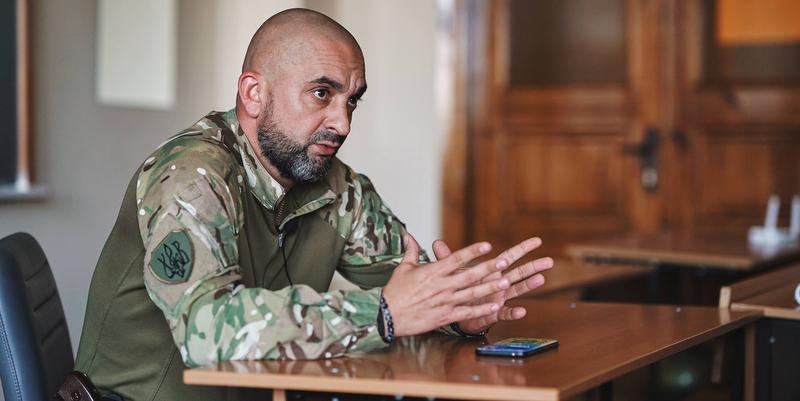
A personal question. Could you please tell me how your personal beliefs have changed during the war?
Well, you see (laughs), nothing has changed for me.
Since my childhood, I have had a dream of becoming a soldier. I realized that dream in 1997 when I enrolled to study. I dreamt of becoming an officer, and I became one.
On August 31, 1997, I took an oath of allegiance to the Ukrainian people. What more can change? When I consciously pledged my loyalty to the Ukrainian people for its defense, for the defense of the state, its territorial integrity, inviolability, and its borders. It was a conscious oath of loyalty to the Ukrainian people.
What now? Seeking vengeance for my closest friends, who meant more to me than relatives? Yes.
For every child killed? Two or three times, yes.
For a civilian killed? Yes, by a million times.
For a destroyed city? Fury by a million times.
For a ravaged country? Also, yes.
Rehabilitation.
How did the idea of creating rehabilitation centers come about?
I had that negative experience from 2014 to 2017. Those were moments when the strength of servicemen and their psychological well-being significantly declined with each day of prolonged combat. I knew that the same would happen after 4-6 months of full-scale warfare.
I had the idea to establish a center for the rehabilitation of personnel combat with the goal of rehabilitating the psychological state of personnel so they could continue to fulfill their combat missions. In June 2022, I created a rehabilitation center, and nearly 4,500 servicemen have undergone combat renewal there.
Qualified military psychologists select personnel from combat positions based on criteria such as partial demoralization, panic fears, and attacks. Servicemen who already exhibit early signs of suicidal behavior are also referred to the center.
In the rehabilitation center, they receive qualified psychological and medical assistance. In approximately two weeks, their psychological and physical well-being is restored. With renewed strength, the soldier returns to the frontlines to carry out combat tasks aimed at achieving our great victory.
Can you tell us about a typical workday at the rehabilitation center?
I can't describe just one day, as they are all part of a program developed by qualified psychologists, including Dr. Igor Prykhodko, a professor with a Ph.D. in psychology, who is a current military officer and a former doctoral student. We studied the effectiveness of each method and training, and whether they can impact the psyche of personnel in the shortest possible time.
For example, on days 2-4, psychologists work in collaboration with medical staff, focusing on personnel disclosure. This period involves adaptation and a transition to a calmer emotional state. The psychologist's primary task is to open up individuals and extract the issues hidden within them. This is crucial.
If a psychologist can achieve this during the 4-5 day adaptation period, they have every chance of providing maximum psychological assistance to the soldier. The rehabilitation includes training, self-regulation, and the control of combat stress. Specialists also teach servicemen how to provide psychological assistance to their comrades, which is a significant aspect. Because after the first three to five minutes of combat, if the serviceman is a "rookie," the fear factor kicks in, they become paralyzed, as they say, and enter a state of stupor. It's essential to help them out of this state so that they can continue to perform their tasks.
What are the main challenges related to the rehabilitation of servicemen that you observe today?
Unfortunately, the concept of "psychological help" in our country has been used only for the last five years, maybe. People in Ukraine, even today, cannot distinguish between the concepts of psychology and psychiatry. They can't. This is a consequence of the Soviet Union. We are trying to make people understand that at the center, it's psychological assistance. Psychology is about inspiring a person's soul and mind.
In your opinion, can universities contribute to helping servicemen and their rehabilitation?
Of course, they can. Universities have departments of psychology. We need to train psychologists according to rehabilitation programs, psychological decompression, and the provision of qualified psychological assistance. After our great victory, we won't have half of the country suffering from psychological disorders, both among civilians and the military. After one, two, or three battles, one's psyche can fail very severely. Therefore, now, in Ukraine, all higher educational institutions with psychology departments should reformat, and learn from foreign experience, for example, from the United States.
They still have problems with veterans of the American-Vietnamese War. They still exist, and unfortunately, the state can't cope with them entirely. Almost 70% of former servicemen, Vietnam veterans, are homeless if you know this. They can't sleep in a warm bed; they can't eat from regular dishes. Their psyche is severely affected. For the duration of their time in the war, the conditions of the trench, the battlefield, and living in a dirty environment became familiar to them. This disrupts their psyche.
The second point is that we need to carefully review the pages of the history of the ten-year Soviet-Afghan War. What were the consequences? The young guys who returned from service, conscript soldiers aged 18-20, couldn't accept the realities of that society: the "collapse of the Soviet Union," the transition from a communist system to a democratic one, and the lifting of the Iron Curtain.
The psyche of a person who has been through a war, whose sense of justice has been heightened, could not accept this. These young men, who had lived in intense combat conditions from 18 to 20 years old, where they learned only to handle weapons, went either into criminal activity or, in the best-case scenario, joined law enforcement agencies. The majority ended up with a life plagued by alcoholism, drug addiction, or in prison for murder.
In a person who has killed even once or twice, as they say, there is a break of patterns: "one more or one less." Can you imagine what's going on in a person's mind? "One more or one less." Then, all post-Soviet states didn't study this; they didn't want to do it, and they didn't conduct research. The majority of the young generation ended their lives, either by suicide or in bars. Few of them survived. That's why psychology departments should study this experience.
How civilians can help with the rehabilitation of soldiers or at least avoid harming them in our interactions?
From your side, well, it's a bit complicated. Each serviceman is an individual with a traumatized psyche. When a civilian approaches and says, "Here, thank you," some may accept it normally, while others may respond with aggression because they perceive it as intruding into their soul with questions or unsolicited advice, which immediately triggers the first signs of aggression.
From your side, it's more about creating NGOs or participating in movements to support veterans. It should be organized and should involve inviting servicemen and honoring them by showing their gratitude through meaningful actions. In that case, it will work.
This should work at all levels of society, starting with the state and reaching every individual citizen. If you want to provide assistance to a soldier, it's better to do it through established community organizations.
Tell me, what did your university education provide for you, not only professionally but also in a spiritual sense?
Thank you for this question. It plays a significant role in my life, to be honest. Every person needs personal development. It's self-improvement. There's even a saying, "Live and learn." As long as we live, we continue to learn. Obtaining a second or third higher education expands my horizons. That's the most important part.Receiving a certain education increases a person's erudition.
The second point is that managerial activities are the peak of a person's abilities. When a person knows how to manage various processes correctly. If they also have theoretical knowledge provided by true experts and scientists in the field, it greatly helps. It helped me in establishing rehabilitation centers in the Kharkiv and Chernihiv regions. Currently, on October 2nd, a third center will be opened in the Dnipropetrovsk region.
It's the realization of theoretical knowledge in practical actions. Honestly, I obtained that education, and I was able to build connections with the public, select administrative resources properly, and manage risks. These are all these walls. They provided me with the theoretical knowledge that I later put into practice, and, thank God, it works.
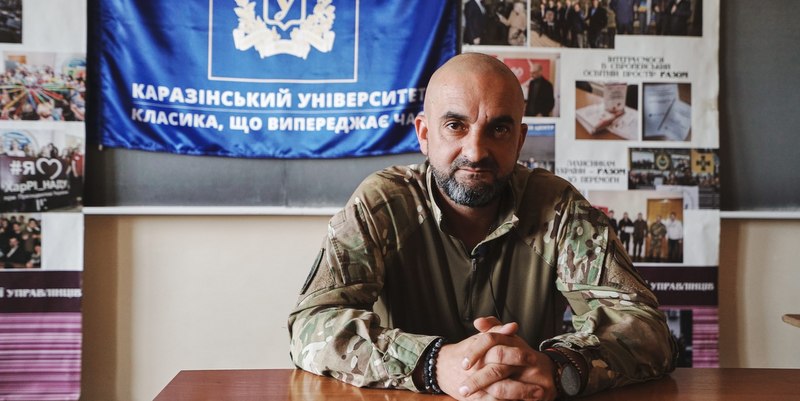
What does Karazin University mean to you in a few words?
Karazin University means progress, development, not giving up, and improving the education of true professionals.
Now, you can offer advice, guidance, and wishes to Karazinites and the whole community who will see your story. What would you like to say?
I'd like to say one thing: be patient, without panicking. There must be those who continue to educate students and those who are willing to learn. Collect strength, acquire education, and gain theoretical and practical knowledge to the maximum. Because the university provides a wide range of specialties, which will be used for the development of our country. So students must absorb as much knowledge as possible. For the faculty members, it's about passing on knowledge to the students for the future development of our country. The more qualified professionals we have, the easier it will be to build a new nation.
Our country is ruined in every direction, economically, and politically. Every sector poses a challenge that needs rebuilding, perhaps even tearing down and starting anew. And knowledge is the key. Some should impart it, and others should absorb it like a sponge. That's when everything works. Fear in your eyes, hands are at work. So absorb all the knowledge you can.
My generation, slightly older or slightly younger, is the main force that's fighting for our freedom and independence. We're fighting for it, and your generation will transition into the process of building a new country, a new state. You will be the builders.
My parents' generation received a brand new independent country in 1991. Unfortunately, that generation didn't preserve it. Ukraine and the other former Soviet republics can be seen as colonies of russia. When we gained independence, we adopted the Communist system of governance, and it was still present in our country until the end of 2013. The first president of Ukraine was a Communist, the second was a Communist. For many years, there wasn't development but rather a decline.
So, look back a little. We are fighting for it, and you are going to build it. Then, there will be a free, independent, thriving country for my grandchildren, your children, and everyone's future. It's all in our hands.



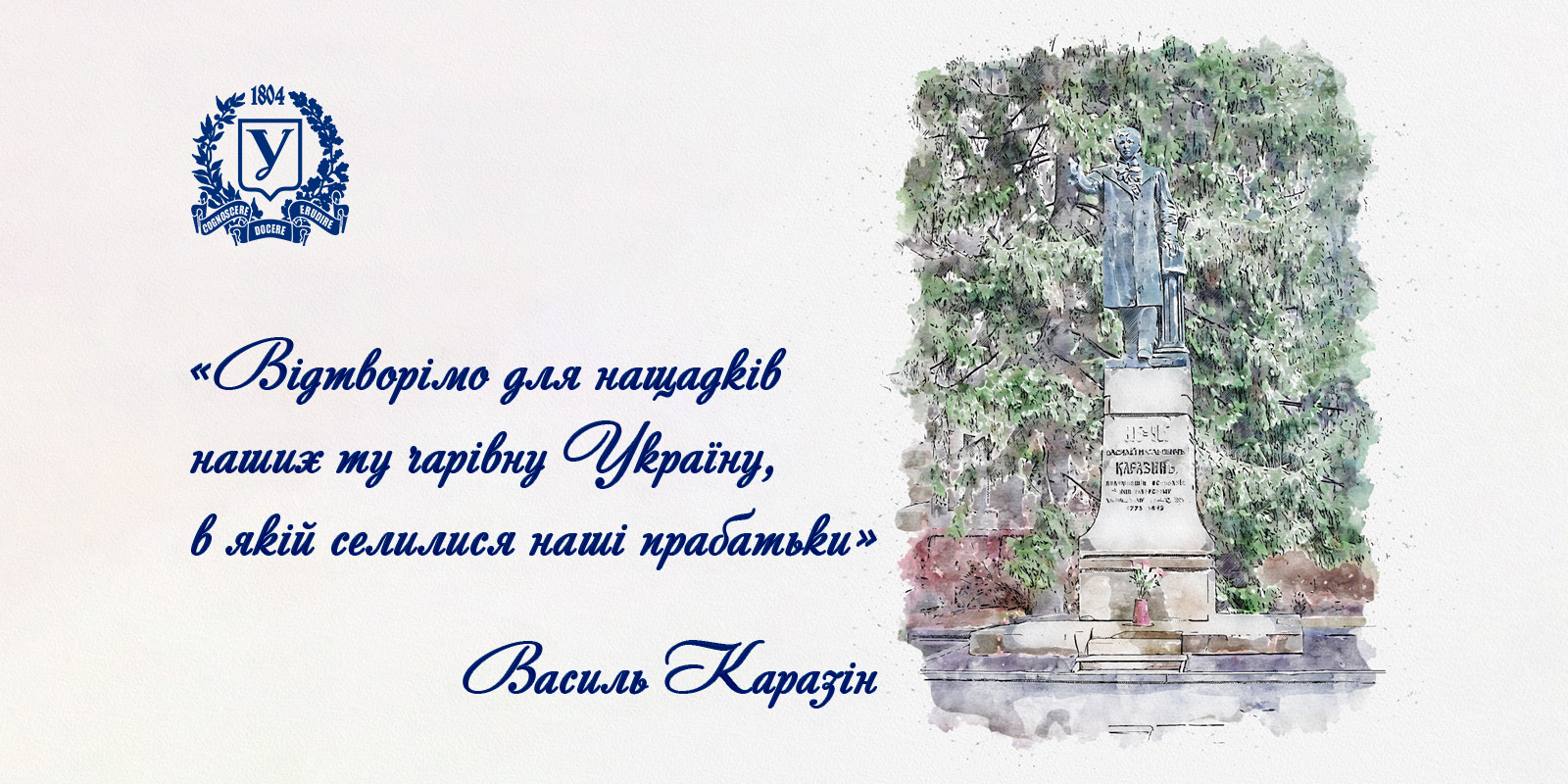
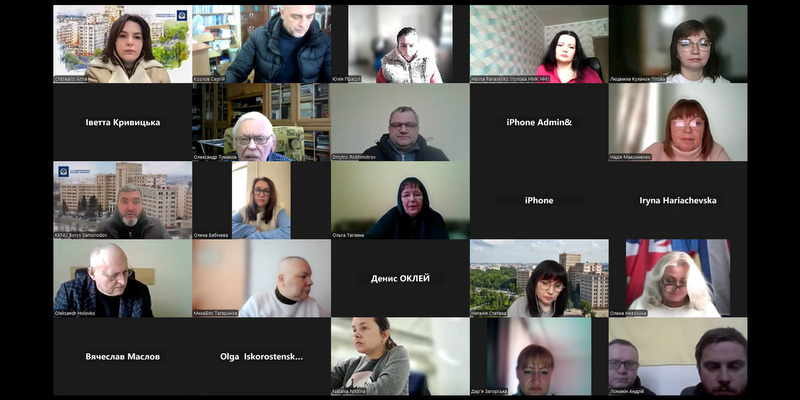
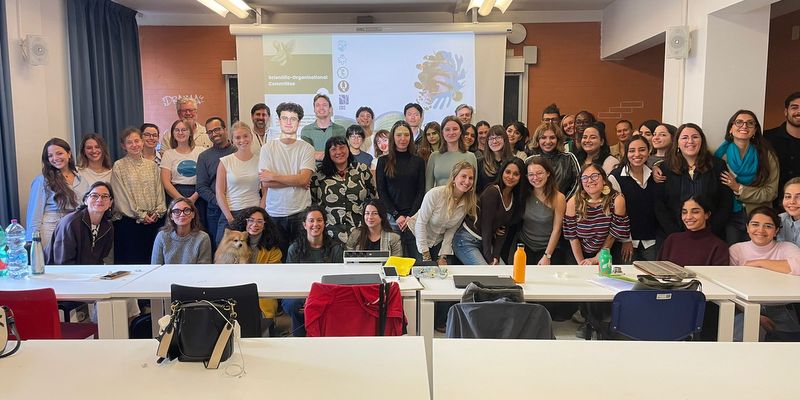
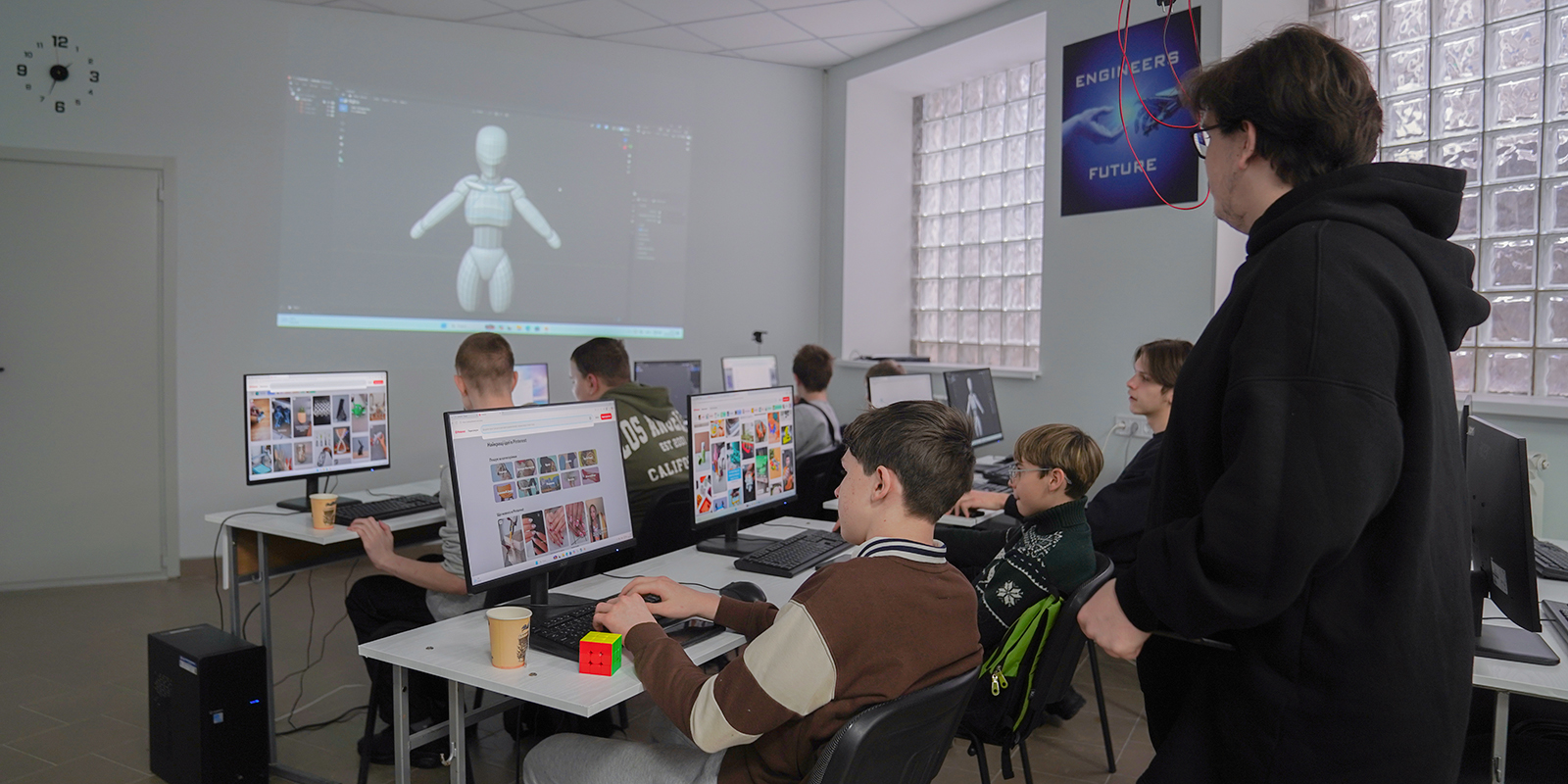
.jpg)
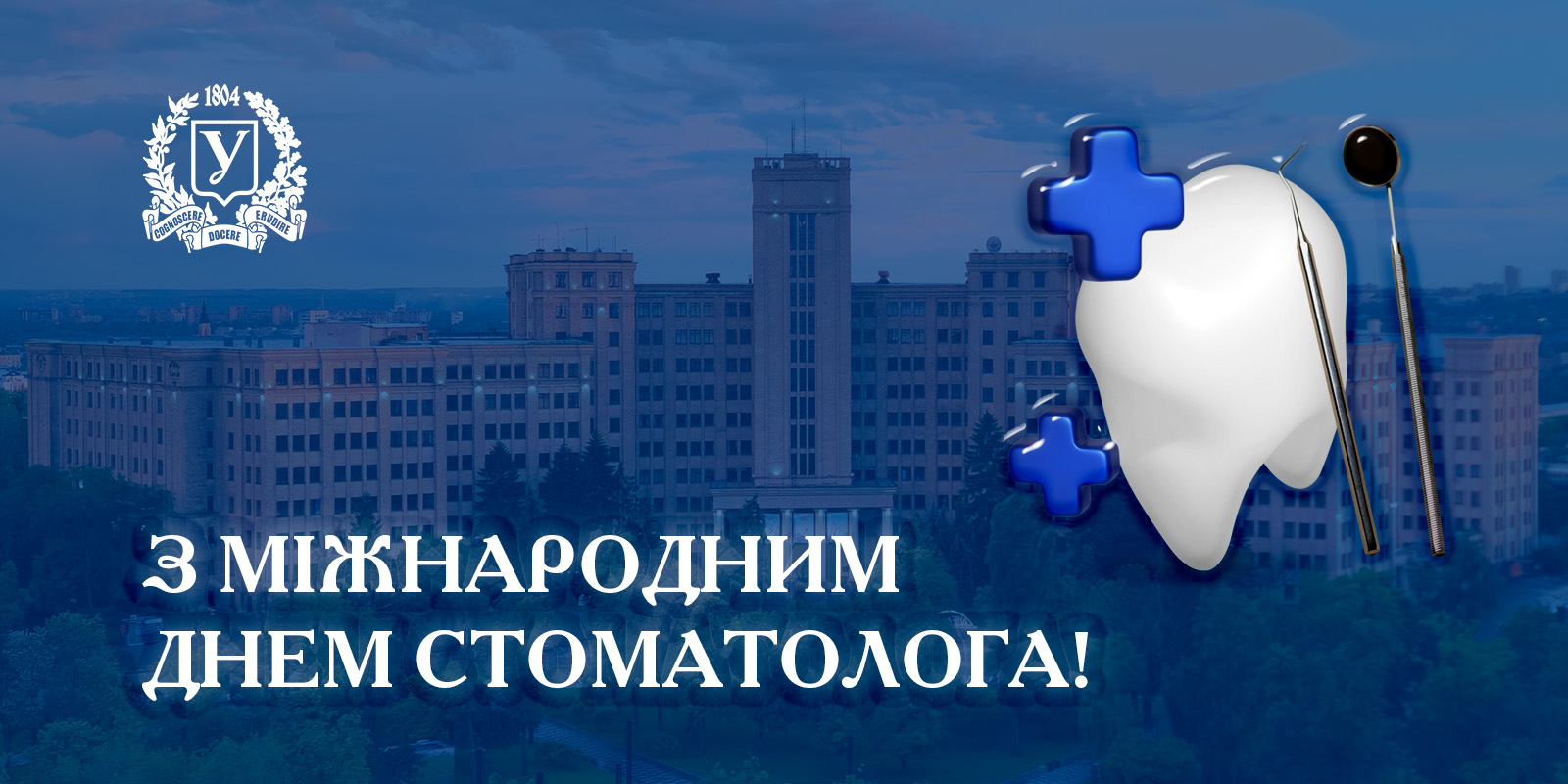
%20(1).jpg)
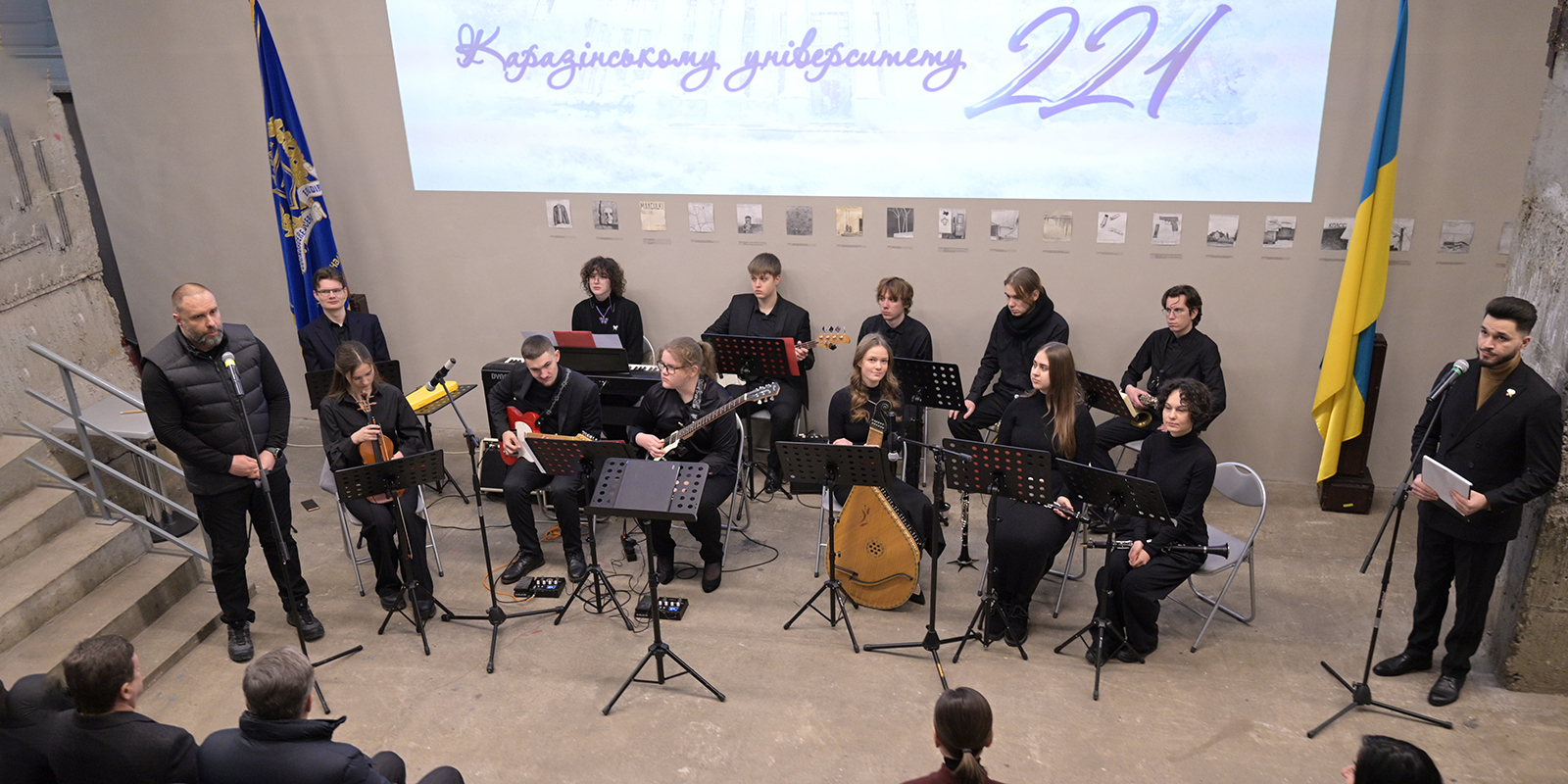
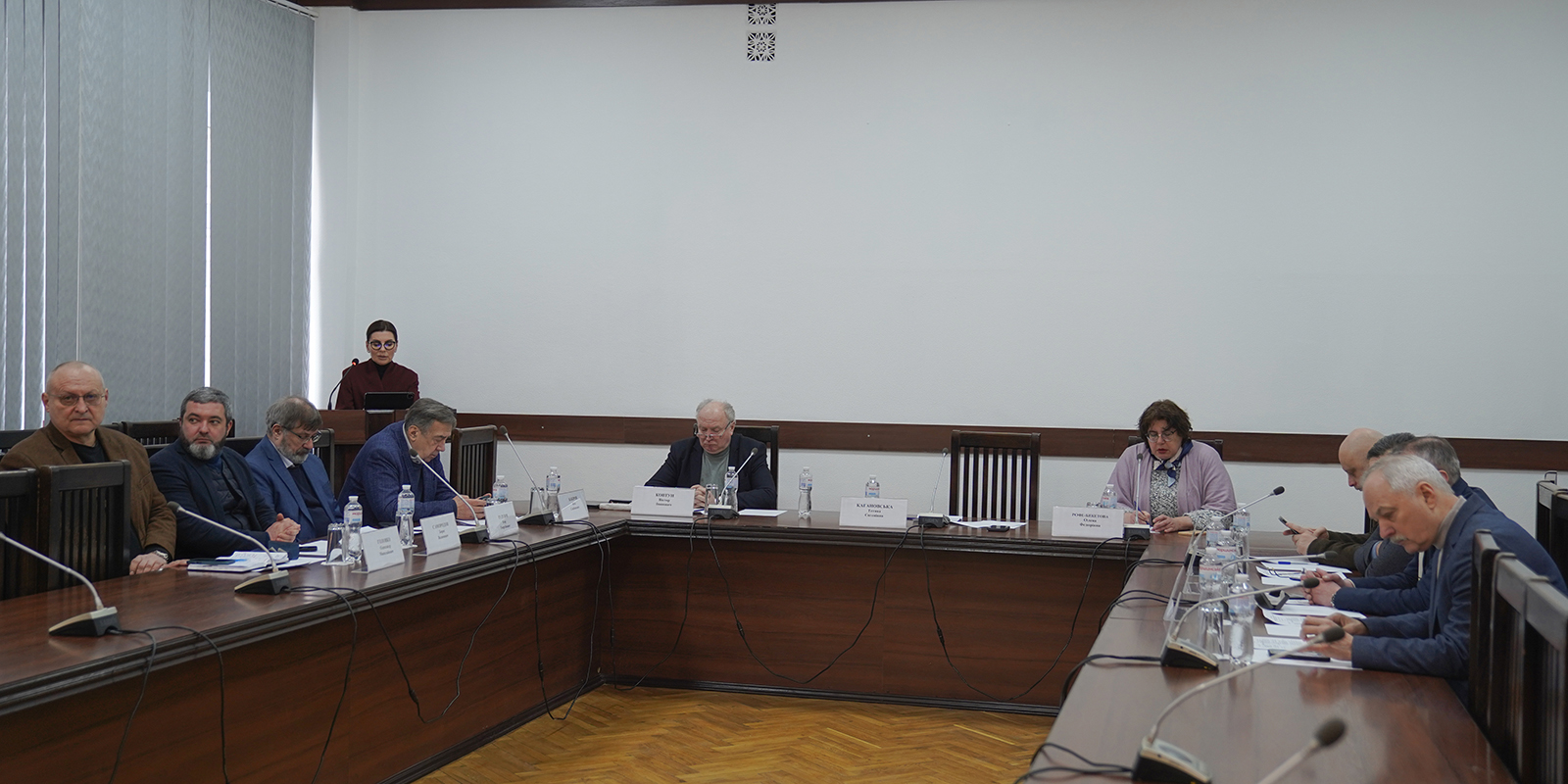
%20(1).png)